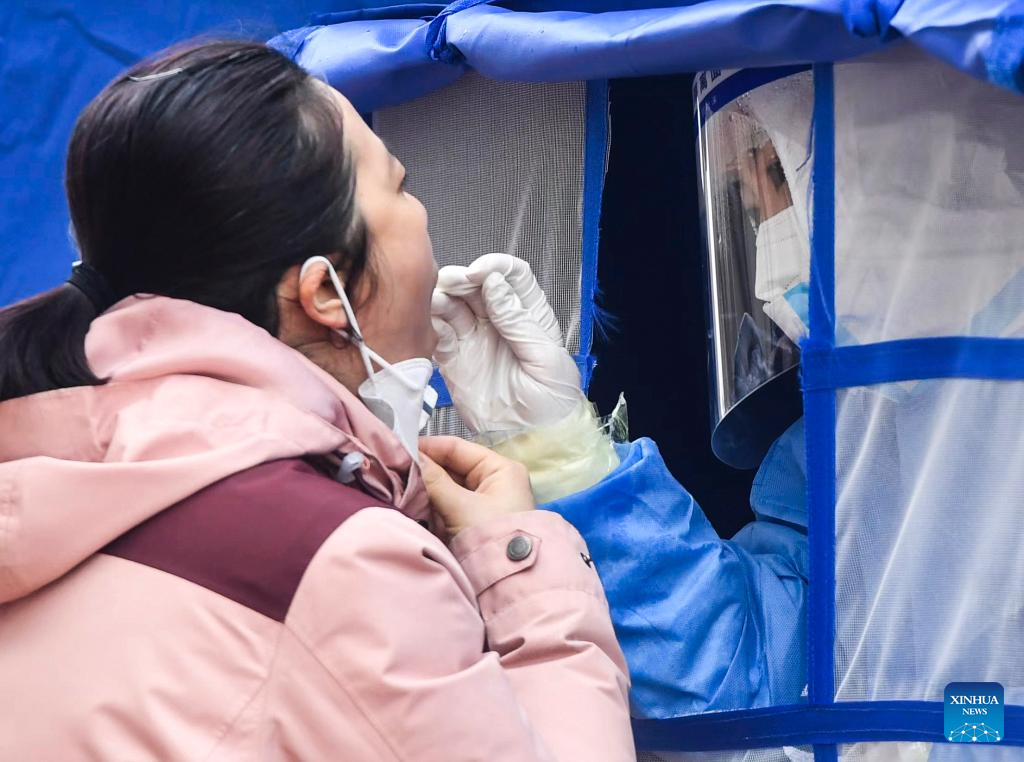Milder infections sign of effective measures


Large proportion of asymptomatic cases indicates early detection, experts say
The large number of mild and asymptomatic cases in China's recent COVID-19 outbreaks is mainly due to the country's successful containment measures such as a high vaccination rate and fast early detection, in addition to the Omicron variant being milder, health officials said.
Zhang Li, deputy director of the Jilin Provincial Health Commission, said more than 98 percent of locally transmitted COVID-19 cases in the province have mild symptoms and only a small proportion have severe symptoms or are in critical condition.
Shanghai reported four local confirmed cases and 979 asymptomatic cases on Wednesday.
Fu Chen, director of the Shanghai Municipal Center for Disease Control and Prevention, said the Omicron variant is more evasive and transmissible but has milder symptoms.
More than 22 million Shanghai residents have completed full COVID-19 vaccination, with more than 11 million having received booster shots, further improving their immunity, he said.
Regionwide nucleic acid tests had also helped the city find more positive patients in the early stages of infection, he added.
Liang Wannian, head of the National Health Commission's COVID-19 leading task force, said the large number of asymptomatic cases has to do with the characteristics of the Omicron variant, which produces higher proportions of cases without symptoms than the Delta variant.
Having most of the cases being asymptomatic also proves the success of China's epidemic containment measures, vaccination efforts, and its early detection ability, Liang said in an interview with China Central Television.
Although all people want the epidemic to be over, the virus and the epidemic do not bend to people's will, he said.
The epidemic will be over when the virus becomes milder and less transmissible, when vaccination becomes more effective in preventing infection, not just severe symptoms and deaths, when there is more effective medications or even "wonder drugs", and when the pandemic situation improves in other countries and China is under less pressure to deal with imported cases, he said.
Only then will China be able to adjust its epidemic control measures and see Chinese people return to normal life.
Zhang Wenhong, head of the infectious disease department at Fudan University's Huashan Hospital in Shanghai, said maintaining normal living should be of the same importance as implementing the dynamic zero-COVID policy.
The fight against the epidemic will be long term, he said. The epidemic should be contained, while at the same time efforts should be made to safeguard people's livelihoods, offer necessary medical resources and protect small and micro-sized enterprises, he said on the Sina Weibo microblogging platform.
"We want to make sure there are no loose ends in epidemiological surveys and epidemic control, but we also want to minimize their impact on people's lives," he said.
Zhang added that there are new drugs against the virus, booster shots are effective and nucleic acid testing is much quicker, all providing support for Shanghai to get rid of the epidemic soon.
- Xi hails Carter's contribution to promoting ties
- China expands elderly care initiatives amid population ageing
- Beijing Court to handle more international commercial cases
- Explore the ancient hot springs in Guizhou
- Green peafowls: a symbol of China's cultural heritage and artistic inspiration
- China unveils global ocean prediction AI model




































